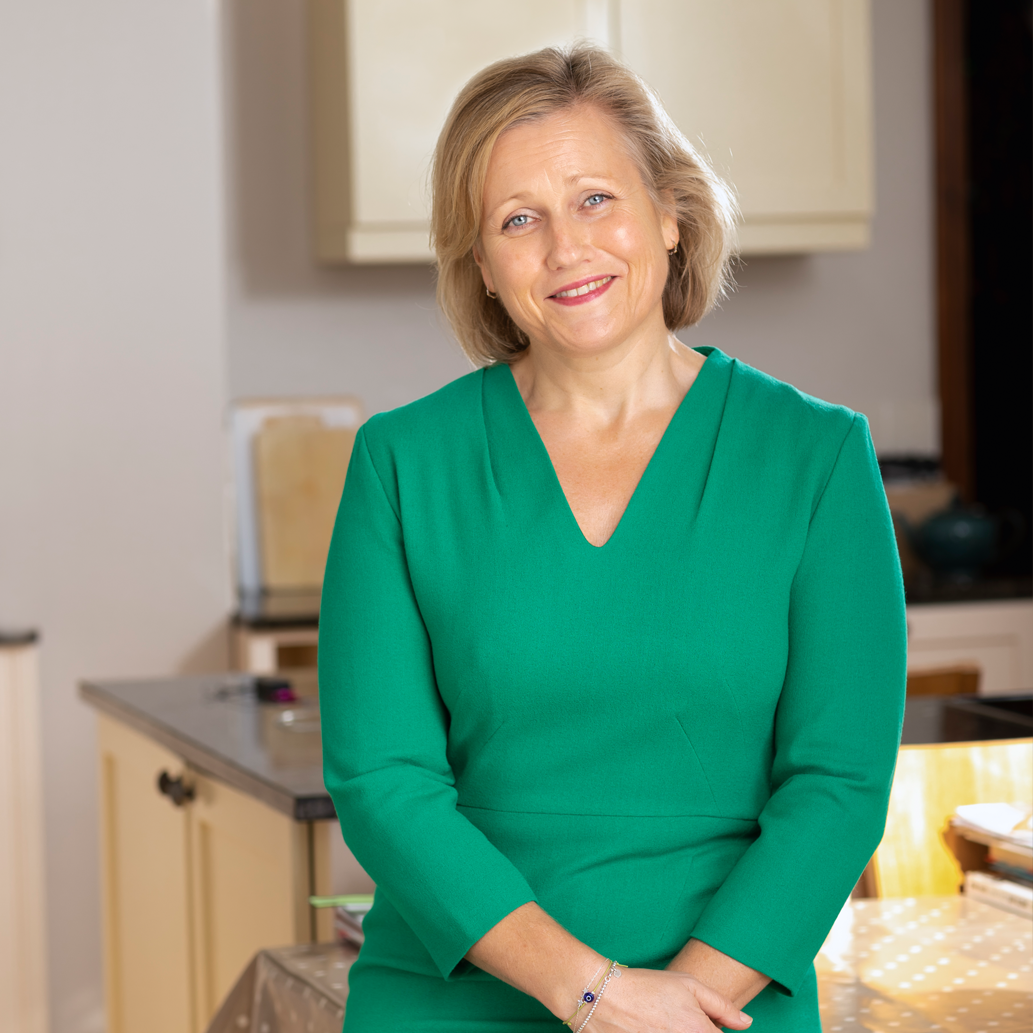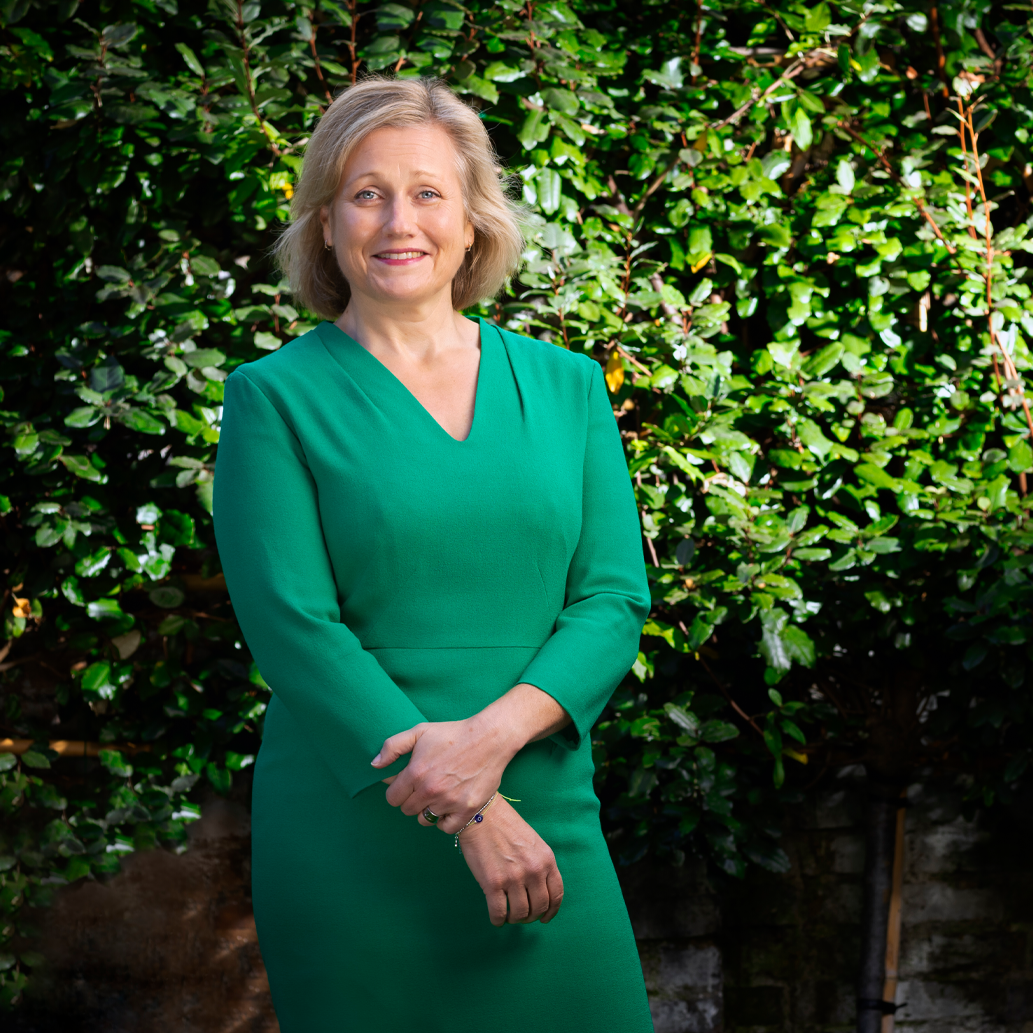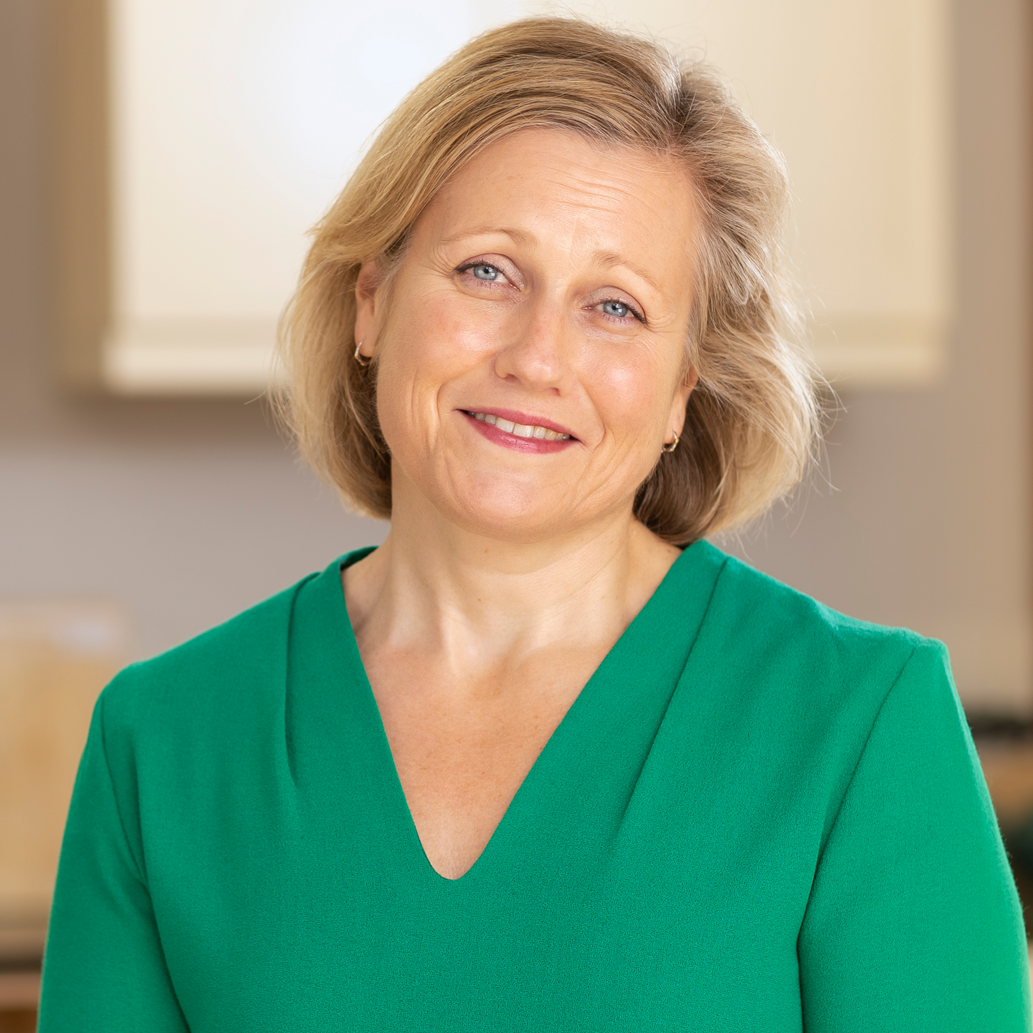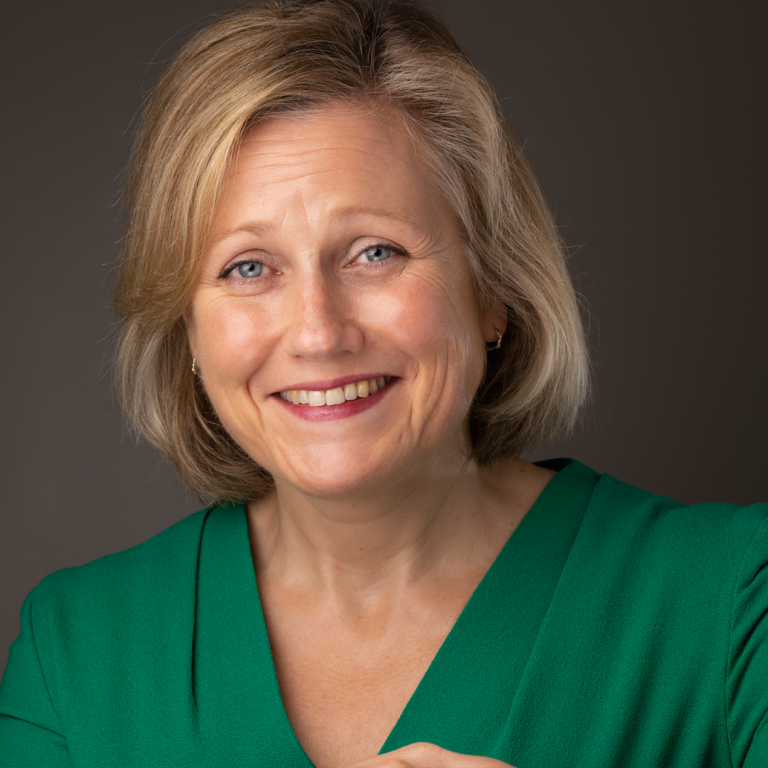Genevieve, tell us about your early life and how you found a career path into HR.
Because I was so sporty at school, the careers advisor suggested I became a PE teacher, but even then, I knew that wasn’t right for me. As an alternative, she suggested a new degree in Recreation Management at Sheffield Polytechnic. I specialised in Business Studies and Sports Science and had a great time, although I didn’t really know what I would end up doing. Whilst there, I joined a gym and a career in the Fitness Industry topped the list of options. Following a variety of roles, including launching and running the Health Club at The Savoy – my first start up – I then joined the gym chain Bladerunner and ended up running 25 corporate gyms across the South of England. Wendy Thorburn, a former Dun & Bradstreet HR Director who worked at Bladerunner, suggested I specialise in HR and studied for a Masters. She must have seen some spark of potential in me, so I took her advice and have not looked back. Further on, I joined a VC backed start up called Business health in a hybrid role. This was a great opportunity to gain insight into the workings of businesses and HR functions across a variety of sectors. So early on, I was developing a wide base of skills and, throughout my career, that has definitely been the pattern – operations, consultancy, commercial, non-exec roles and volunteer leadership roles in rugby – I was never a HR purist and it’s definitely made me a better business-minded HR leader.

How useful was having a sports mindset in forging your early career?
There’s no doubt that a sports mindset has been really important to me. Sport gives such positive experiences and develops great skills for everyone, regardless of age or level that the sport is played. My sporting life has reinforced the importance of the team and embracing diversity, along with discipline, competitiveness and ambition, resilience, commitment and so much more. It has also given me confidence in myself and my abilities; I’m an ex-Wasps and England A player – my shirts are here on the wall (points) – well… not the really big one, that’s Martin Johnson’s from the 2003 Rugby World Cup win. I’m so proud to still be part of the rugby community.

What happened next?
An opportunity came along that I could not refuse, a new music and entertainment venue that was being developed from what was then called the Millennium Dome. They were recruiting for an HR Director and I applied and joined the then small team, focused on launching what was to become The O2. It was an amazing six years, being part of the team that launched what became the world’s most successful venue. During my time with Anschutz Entertainment Group – or AEG as it is more widely known – I ended up as European HR Director, looking after The O2, AEG Live, which was the music promotion side of the business, the David Beckham Academy and Thames Clippers, as well as supporting the opening of the new venues in Europe and providing consultancy support to the Australian business. I was also Chair of Thames Clippers for three years, which was an amazing experience to learn about that sector.

Give us some specific examples of the HR challenges in bringing The O2 arena to life.
My first challenge was to build my HR Team from scratch. We wanted to do something completely different in music and entertainment, prioritising the customer experience. My team worked across The O2, supporting recruitment, induction and training. We also had to communicate our vision for The O2 and AEG’s EVP, in a way that people could engage with, not least considering the not-so-positive press and perception of the Millennium Dome at that time. It was quite a challenge to overcome the “white elephant” image of the Dome and to share a vision of a music and entertainment destination that had never existed. Working with GLLaB, Greenwich Local Labour and Business under Michelle Rankin’s leadership, they facilitated our section 106 commitment to make “reasonable endeavours” to recruit staff locally and helped us to communicate this vision. I will never forget turning up to the local football stadium and seeing a queue snaking all the way round the ground of people there to meet the various brands and employers recruiting for the venue. Rosa D’Alessandro, our Head of CSR, was a key partner in this and I learnt a lot from her about the business value of CSR. At The O2’s launch in June 2007, 34 percent of our operations team lived in Greenwich Borough, a fact that I am very proud of.
The way careers evolve is so interesting. Sometimes you can be ready for a role, while others, it’s a big stretch, a kind of, baptism by fire.
Usually when I interview people, they say, “I don’t think I’m ready for this role,” and I say, “no you’re not and that’s why you need to go for it.” If you’re perfect for a job, how long before you’re frustrated by it? It’s much better to grow into a role, fail fast and learn from your mistakes. I will give anything a go and I have a real dislike for lazy stereotypes and think pigeon-holing people is the worst crime against potential.
What happened next?
I was expecting my daughter and decided that I wanted a role that offered greater flexibility. I was approached by someone who said that they had an opportunity that was a bit different, so that appealed to me. I met Kumar Jacob – who was Chair of the Maudsley Charity at the time – who shared his vision as to how we could raise awareness and understanding of mental health, using technology-enabled learning. This was a great opportunity to be a Managing Director, start up a new business and work alongside the Institute of Psychiatry (IoP) and Maudsley Charity. Our vision was; “to develop and deliver accessible learning in mental health”. The aim was to work with the world-renowned academics at the IoP and to translate their knowledge in a way that everyone could understand and by making it freely accessible using technology. I have, over the years, understood the importance of having an effective board and this was an opportunity to build one from scratch, with the right balance of skills, experience and diversity of perspectives, to support me and the business. I learnt a lot and quickly and, whilst being the number one didn’t faze me, I did find the stakeholder management a real challenge. We opened a meeting and events venue, which was a beautiful new building in Camberwell – which was shortlisted for the Stirling Prize – and opened it to the community and beyond. It was a fully-inclusive environment where clinicians, academics, local residents, business and patients rubbed shoulders in the café and at events. But there came a point where I felt that I had come to the end of my time with the business, after about three and a half years. At the same time, I was approached about the opportunity to join an organisation that ran care homes and it was a move that I felt compelled to take. I carried out some due diligence and when offered the role of Group HR Director at Barchester, I wholeheartedly accepted. It helped of course that Pete Calveley, CEO, was a big rugby fan, but we had great synergy in general and I felt energised by his vision of the challenges and opportunities ahead.
What were the key objectives for the organisation and explain what challenges needed to be addressed?
I reflect back five years to when I joined, replacing an interim HR Director. Pete had joined as CEO in 2014 and his first major task was to bring in a new Leadership Team, with a fresh new perspective for the journey ahead. The guiding principle was and still remains, ‘Quality First’. This was based on the premise that this quality of care focus is a key part of our purpose and culture and we achieve commercial success because of this. My role was to develop a people strategy that would enable and contribute to this, which is what I have delivered and, over time, our quality of care ratings – as assessed by the regulators – has improved year-on-year, as has our commercial performance. I’m proud to say that the people strategy has been part of delivering this success.
Explain the strategy behind this achievement?
Pete was keen to build a leadership team that could work with him to drive this vision and our business plan. It took a number of goes to reach this point, but we now have a really strong team that, not only has the basics right, but has also stepped up positively in response to the pandemic. From an HR perspective, the challenges and pressures are many and varied, but the headliners are; a shortage of skills and unparalleled attrition, which developed a sector mindset of; “let’s just recruit 6,000 people a year and lose 6,000 people a year.” When consistency of staff and developing people are the foundations of good care, that doesn’t help. Care is a local community mainstay and so a focus on our local brand was very important, in order to recruit good people from the localities around our care homes, across the country. In fact, this was seen from the start as much more critical than the overall corporate brand. We then looked at the EVP, an area that has historically not been a mainstay of recruitment in the care sector, but we identified this as being crucial to bringing in great people that had a caring and learning mindset. So, recruiting well, efficiently and at scale had to be based on attracting good people with a competitive offer. It was also about building a team culture, which makes all the difference in a care setting. This is something we call “the whole home approach”, where all members of the team in a service, no matter their role, contribute to the resident experience. It sounds simple, but it achieves great camaraderie and, most importantly, understanding and empathy across teams, because everyone is contributing to the fundamental aspect of the business; providing great care consistently.
What about senior managers, what are the challenges there?
Recruiting the best in any business is always a challenge and this is no different, but we are uncompromising in recruiting those who can step up to leading a service in ‘The Barchester Way’. The majority of our operational managers are nurses and we expect them to balance consistently good delivery of care, the commercial performance of the home, leading a large team, proactive and positive engagement with relatives and links with LAs and CCGs. It’s a very broad role and we support them to do that. We’re constantly thinking about how we can improve how we recruit and from where, what we provide in terms of induction and leadership development, what we pay and how we incentivise and how we support. It’s about listening, talking to people and understanding the detail on a human level, as well as looking at what the data is telling us, because in normal times, we would be visiting our homes and hospitals regularly.
How difficult is it to implement change in the care sector?
With multiple settings, each with their individual managers and styles, this must be a challenge. When we recruit managers and leaders, we ensure that they can demonstrate that they have and do, respond positively to change and this ability to implement change has definitely improved over the last couple of years. Partly, this is because I think our culture is more collaborative and constructive in working across functions, with operations and across Divisions and partly because we have strong and consistent leadership at the top. At the same time, I think we have clarity on how we measure and reward success across the business. We did have, at one point, a myriad of different pay and bonus schemes, which is always a surefire source for disengagement, as some paid out and some didn’t, against different criteria. So, unifying that aspect of the business was an important move and a big task. From an HR perspective, it’s not about decreeing change and executing new policies from an ivory tower, it’s about engaging with people in the journey and ensuring that you have buy in through the business and particularly from our operational leaders, as they know their teams so well. We created a framework where we are all measured against the same two metrics; quality of care (as assessed by the regulator) and EBITDA/R. That’s it, from carer and housekeeper right through to the CEO. It sounds simple and, to an extent it is, albeit that behind the scenes there’s a lot of work required for its delivery. So consistent measures, consistent communication, consistent timings to measure and feedback and transparency.
It's a sector that has made the headlines for all the wrong reasons before the pandemic andduring the crisis. How has this impacted Barchester?
In the last couple of years, our culture has evolved to be more positive, collaborative and aligned in terms of delivering to our purpose. Our people strategy, called ‘Together, People make Barchester’ played a fundamental role in the evolution of this culture, as our corporate and operational leaders bought into four commitments that we made to our employees and expectations of our leaders. Simply, it was around who we attracted to join our teams, how we would develop them to fulfil their potential, how we supported and drove their performance and how we retained their talent. All this with a focus on consistency in delivering good care and commercial performance. At the same time, we set up Barchester’s first Internal Comms function, which sits within my team, so that we could build a strong framework of two-way communication, both in our homes and hospitals and across the organisation. Clarity and a rhythm of communication is maintained, across a variety of media, using consistent messaging. Where, as far as we are able, we check receipt and understanding – was also an important part of this culture change. This increased openness and transparency was reinforced by ensuring open channels into the business, through direct emails to the CEO, intranet message boards, surveys, home and hospital visits etc. Having this foundation of two-way comms, has been instrumental in supporting our whole team response to the pandemic. So, that’s the journey we’ve been through and, without a doubt, that has meant that Barchester as a whole, has stepped up to the challenge of COVID as a team. Our teams tell us that they have never felt more of a family and are glad to be part of a large organisation in this sector, as they feel that we are supporting them and ‘have their backs’.
But even on our A-game, it was and continues to be a long and formidable challenge that has impacted on people and hit the most vulnerable extremely hard. The deaths that visited the care sector in the early stages of the pandemic were horribly tragic and the ongoing distress, caused by people being isolated and unable to be close to loved ones, has been heartbreaking. I’m proud to say that Barchester was proactive and quick to respond and we have been consistent throughout and rigorous in our management. We have even managed to continue building and expanding during this period – including the acquisition of 36 new services – and our staff have stepped up to integrate those into the business. That’s effectively 1500 new residents and 3500 new staff and, next year, we intend to open ten new residential homes. I’m immensely proud of how we have collectively come together, not only to keep going, but to continue to evolve and build.
What does 2021 hold for you and your HR plans?
Barchester’s current people strategy will be in its third year in 2021 and already I am thinking about 2022 to 2025. Next year, our focus will continue to be on the mental, physical and financial wellbeing of our people, providing even more support for our leaders throughout the business and tracking the development of our top 250 leaders, so that we can future-proof our growth and performance. We are also currently mapping our next five years, in relation to systems planning and we will be developing further our equality, diversity and inclusion activities, to ensure that everyone who works at Barchester – and all our residents and patients too – feel like they belong and can be themselves.
I can’t finish the interview without revisiting your esteemed rugby achievements and you say that you still play a part in the game?
Not on the pitch any more sadly! Over the past 15 years, I’ve supported rugby in a number of non-exec roles. As a former Wasps player, I am a Trustee and Vice-President of Wasps and I now Chair the Wasps Legends’ Charitable Foundation, which is a charity that’s based on the alumni of Wasps – for both men and women, who are former pro and amateur players. We raise charitable funds through rugby and the Wasps community. I also sit on the RFU Council, by virtue of my chairing the Diversity & Inclusion Working Group, with a focus on leadership and governance in the game. All experiences that add value to my personal skills and professional career.
What do you think you have learnt about yourself and others in what you've experienced over this pandemic?
he quote that keeps coming to mind is from Dr. Martin Luther King – I’ve tweaked it slightly because the original refers to a man – but it’s; “the ultimate measure of a team is not where they stand in the moments of comfort, but where they stand at times of challenge and controversy.” I’ve used that a couple of times, because I think that’s very, very relevant to Barchester and us all as a team.












